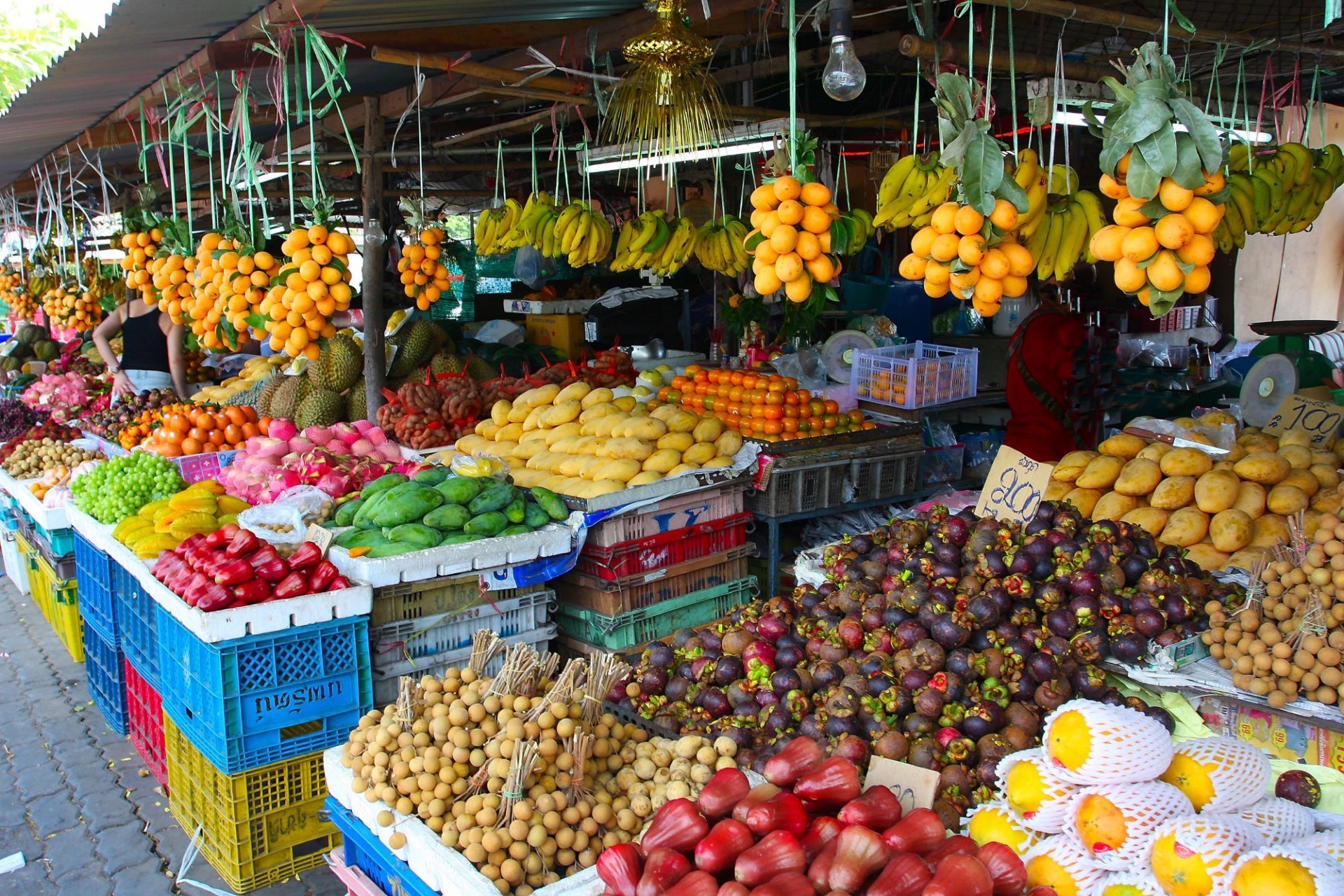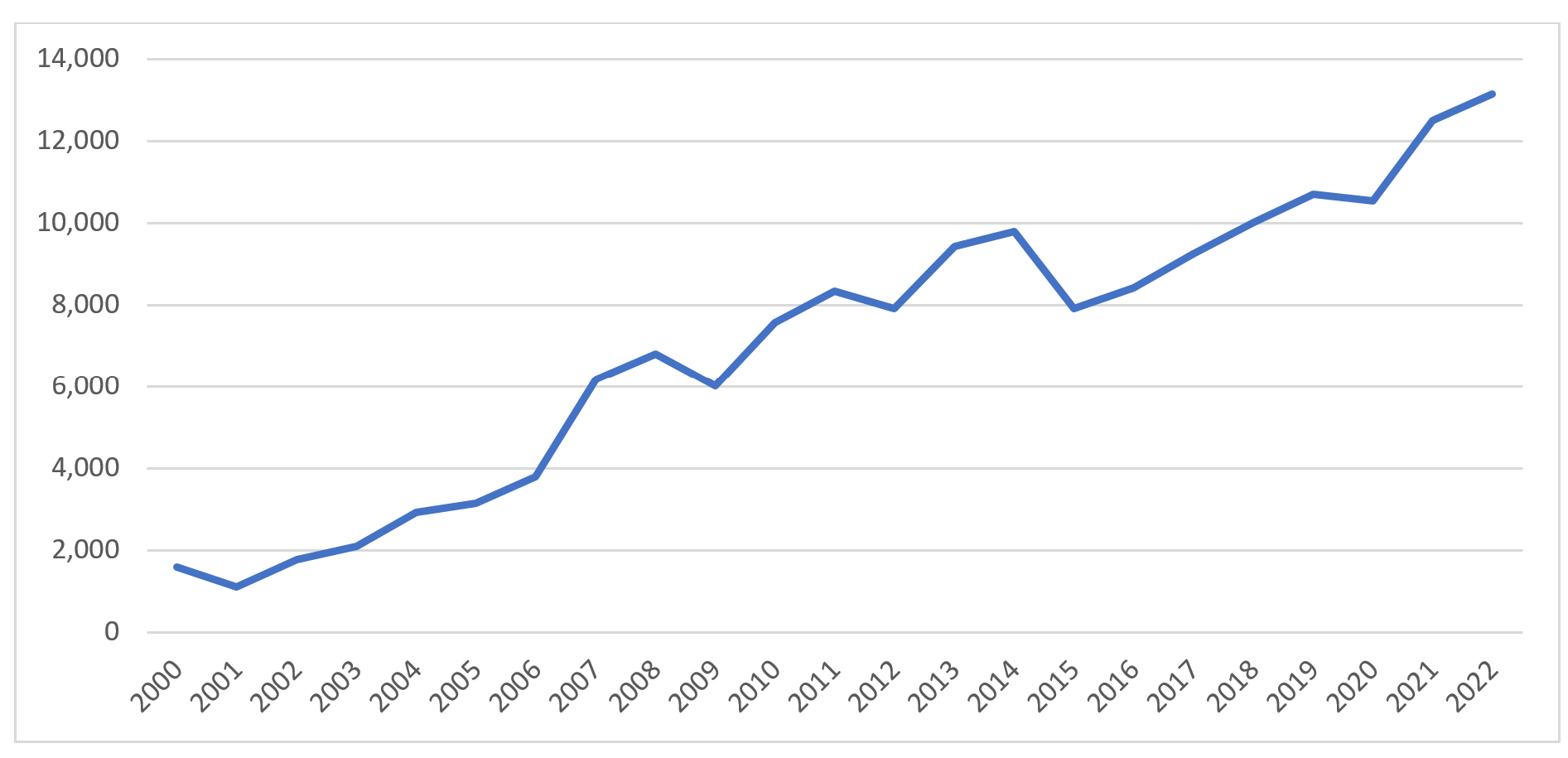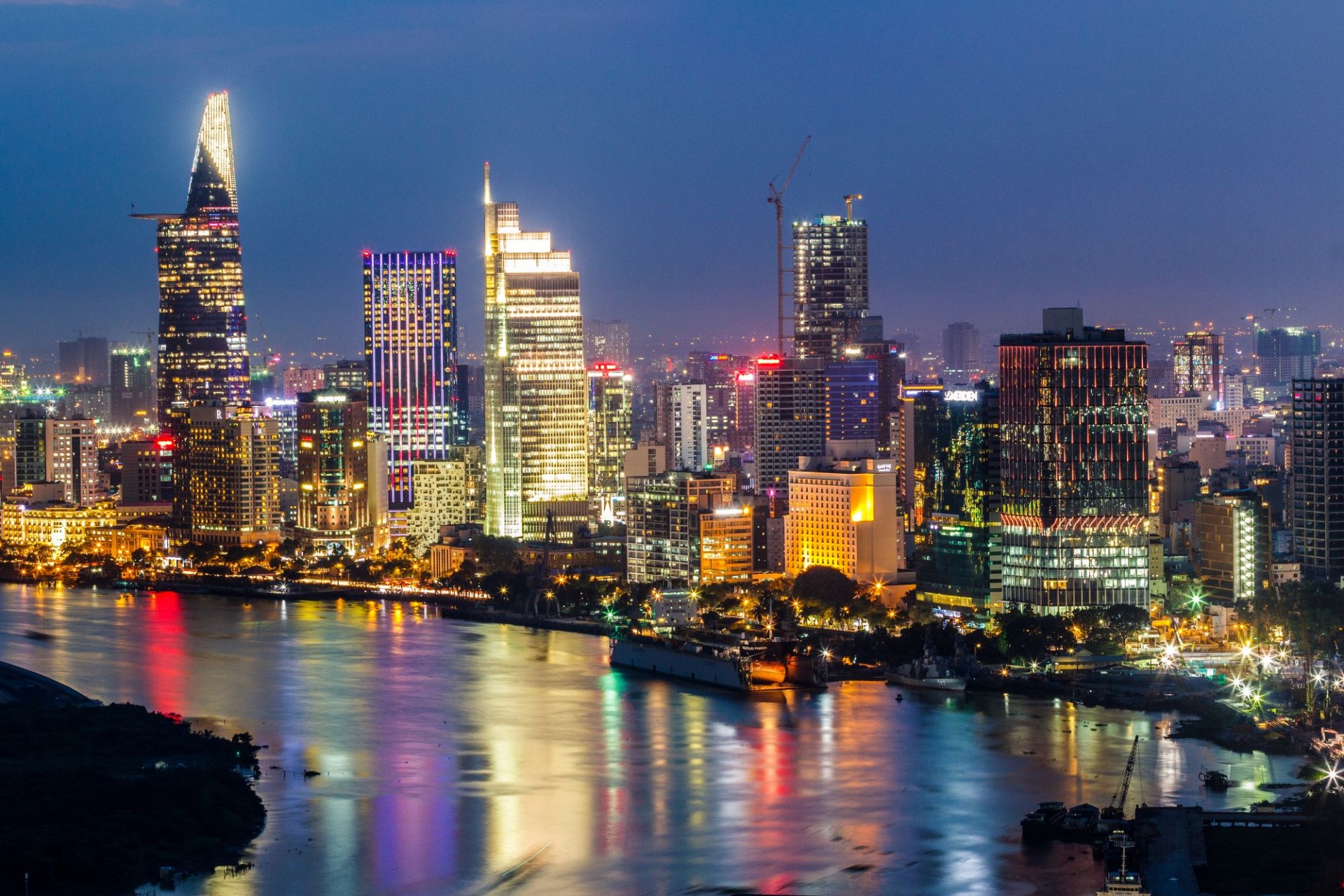The Diaspora in Vietnamese Development: Lessons for Cuba
Omar Everleny Pérez Villanueva
Vietnam demonstrated that even in underdevelopment it is possible to unleash productive forces by using the free market, among other guides. And it has done so by including its diaspora.
Since the beginning of the Vietnamese reform, known as Doi Moi, the Communist Party of Vietnam (CPV) and its government have always given importance to the Vietnamese community abroad. Government policy has been to heal resentments between those who live outside and those inside, and above all, to support the former for their contributions to the development of the nation.
Statistics reveal that in 2020 more than 3,392,025 Vietnamese citizens lived outside the country. Vietnamese emigrants moved mainly to the United States, where 41.37% of the emigration were concentrated, followed far by Japan (9.90%) and China (8.94%). In the United States, there were 1,403,193 Vietnamese, in Japan 355,668, in China 303,812 and in Australia 269, 812 [i].
In 1976, and later at the Fifth Congress of the PCV in 1980, the PCV adopted resolutions recognizing the contributions that the Vietnamese diaspora could make to national reconstruction. They were characterized Vietnamese emigrants as “compatriots residing abroad.”
The celebration of the Sixth Congress, in 1986, marked a milestone in the history of the Socialist Republic of Vietnam, because it outlined premises for the reform that would change the course of the country. As part of the proposed reforms, the nation communicated to the emigrants the important role they could play in the development of their native country.
These documents expressed, for example, the need to:
Create favorable conditions for Vietnamese living abroad to build community with the nation by incorporating themselves into the society of the country where they reside while drawing closer to their homeland in order to contribute to national construction[ii].
In its process of normalization with its emigration, the Vietnamese government had to resolve problems with psychological, legal and political manifestations, in addition to recognizing the mistakes it made in the past.
With the elimination of the economic and financial embargo of the United States on Vietnam in 1994, and the establishment of relations between Vietnam and the United States in 1995, Vietnam's policy towards its emigrants began by outreach directly through the embassy and consulates. This facilitated informing the emigrated community about the policy changes regarding them adopted by Vietnam. Resolution 36 of the PCV established the policy principles for how the various ministries had to treat their emigrants.
The policy regarding overseas Vietnamese was framed to reflect the tradition of national unity, which is based on nationalism, patriotism and national pride, as well as the common goals of every Vietnamese, which are to ensure national independence and territorial integrity[iii].
The resolution clearly marked the intention of the leaders to move away from the prior markedly ideological discourse to a more nationalist one, with the aim of 1) attracting the largest number of emigrants possible to aid in the development of Vietnam, and 2) holding meetings with emigrant communities residing in the United States, meeting with intellectuals, businessmen, — and focusing on the contributions they could make, for example, in investment, remittances and technology transfers.

In 2007, during the visit of the President of Vietnam to the United States, in order to improve relations with its communities abroad, Vietnam announced the elimination of an entry visa for Vietnamese emigres.
In 2015, for the first time in the history of diplomatic relations, a secretary general of the PCV officially visited the United States. During that stay, he had numerous exchanges with the Vietnamese community:
“The Party and State of Vietnam always pay great attention to the Vietnamese community abroad, in general, and in the United States, in particular, considering them an inseparable part of the nation and a driving force of the country's development”, prime minister Pham Minh Chinh said.[iv]
Shortly after arriving in San Francisco to attend the 78th session of the United Nations General Assembly (September 2023), after participating in several bilateral activities, the prime minister held a conversation with his countrymen, praising the role the Vietnamese community was playing in national development and expressing his hope that Vietnamese companies, intellectuals and scientists in the United States would continue to support the country's development with concrete projects and activities. Moreover, he expressed his hope that the Vietnamese community would increase its efforts in strengthening the ties between the two countries.
Encouraging Remittances
One of Vietnam's priorities regarding its emigration was capturing the remittances the emigrants could send, which were an important source of capital for the country's development. Moreover, remittances were key for families to achieve greater purchasing power. They were then a main element for stabilizing households and eliminating poverty.
A survey by a Vietnamese institute revealed that around 57% of remittances were generated from Vietnamese living in the United States, 8.4% from residents in Canada, 6% from Germany, and 4% from France [v].
In 2018, the State Bank of Vietnam announced that 7 out of every 10 dollars the country received in remittances were in the form of investment capital, a figure that has continued to increase in recent years. Approximately 16% of remittance capital was invested in existing businesses and 20% in real estate.
In 2015, Vietnam adopted a housing law allowing non-resident Vietnamese to buy houses and other real property in their native country, suggesting that the policy was geared to increase real estate development. Why would Vietnamese emigrants invest in Vietnam? It was a thriving economy, growing at rates greater than 7% annually and with improving macroeconomic indicators, among other factors. In the past, emigrants sent their remittances to their relatives for their consumption. Today, remittance are principally dedicated to developing businesses.
Remittances Flows to Vietnam in Millions of U.S. Dollars

Source: https://www.knomad.org/data/remittances
Direct Investment by Vietnamese Emigrants
For Vietnam, foreign capital investment has been vital for economic development. The government has always prioritized investment capital from its emigrants, as, among other reasons, they can understand better the particularities of their native country.
The Vietnamese diaspora has invested in the development of agriculture and seafood processing, as products of “ethnic trade”, that is, export goods targeted for consumption of its emigrants settled in other countries. This targeted exporting provides Vietnamese producers with a stable niche in the export trade segment.
According to the Ministry of Foreign Affairs of Vietnam (MOFA 2018), in 2018 the diaspora invested in more than 3,200 projects with an approximate total amount of 5.7 billion dollars. Most of the investment was directed to businesses linked to services, tourism and the agri-food sector.
In November 2020, the authorities held the conference reviewing the five years of the implementation of Directive 45 of the Political Bureau of the CPV on increasing initiatives related to compatriots abroad. Deputy Prime Minister and Foreign Minister Pham Binh Minh highly valued the practical contributions of this community to its native country. He emphasized:
In the last five years, Directive 45 has been implemented in a coordinated and thoughtful manner. The policy that considers overseas Vietnamese as an inseparable part and resource for Vietnam has come to life. This initiative continues to be a pillar in the external policy of the Party and the State.
The conference focused on three key themes: improving and increasing the efficiency of substantive policies in this area; attracting resources from overseas compatriots for national construction, defense and development; and increasing communication with and promoting the learning of the mother tongue among the overseas Vietnamese community, in order to preserve and promote identity culture and national traditions[vi].
Vietnam and Cuba
The situation in Vietnam was somewhat different from that in Cuba. But studying government policy regarding the Vietnamese diaspora could be very useful for the processes that Cuba must undergo in the future.
Those who opposed lifting sanctions against Vietnam were relatives of American soldiers killed during the war. There were many families who thought that their sons were still alive and imprisoned. At first, Vietnam did not help identify the remains of the deceased Americans.
An important point of the negotiations for the United States was obtaining assistance in identifying the remains of the deceased Americans and taking the remains back for burial in the U.S. As a result, the Vietnamese government began working with the U.S. military in order to identify and return the soldiers' remains.
Those who led the effort for lifting of sanctions against Vietnam were two prominent senators who had fought in Vietnam: John Kerry and John McCain, who also was imprisoned in Hanoi for five years, and they did so because they personally favored ending the sanctions. On the other hand, geopolitical considerations of the United States regarding China undoubtedly played an important role.
That Vietnam was moving toward a market economy was an attractive feature for the U.S. But, if Vietnam failed as a market economy, the failure would not impact the United States, as Vietnam is located half way across the world. Failure by Vietnam would simply foreclose investment opportunities for American companies.
In the case of Cuba, its exiles are the ones that refuse to reestablish relations with their country of origin for a variety of reasons, including the nationalizations that took place early in the Revolution and the existence of political prisoners. In addition, certain Cuban-American congressmen who do not support the improvement of relations with Cuba have played an outsized role in U.S. policy towards Cuba. Their votes are necessary for other legislation the political parties wish to pass and they therefore have great influence on Cuban issues. As a result, the United States government continues to keep Cuba on unilateral lists, such as the list of countries that do not collaborate in the fight against terrorism.
If Cuba were to make profound changes in its system and move to an economy with a much larger private sector, as Vietnam did, American companies would seek investment in Cuba and both countries would find new markets for the sale of their agricultural products. And investment from the Cuban diaspora in Cuba would flourish. Unlike in the case of far-away Vietnam, the U.S. government has a greater interest in next-door neighbor Cuba flourishing.
A Cuban transition to a sustainable economy would mitigate growth of the current crisis that drives massive immigration to the United States. Despite the opposition of certain sectors in Florida to reducing immigration from Cuba, reducing immigration is an important goal for the U.S.
Vietnam demonstrated that even in underdevelopment, progress can be made in boosting productive forces by using the market mechanism, flexible planning and higher levels of decentralization. Moreover, Vietnam has also been pragmatic in its diplomatic relations with the United States - without giving up sovereignty and independence.
[i] Los vietnamitas emigran más. Revista Expansión/ Datos macro.com
[ii] Joy Puentes Saldice. La estrategia de vietnam hacia su emigración en los estados unidos 2010-2018. 30 de noviembre 2019.
[iii] Idem anterior
[v] Instituto Central de Gestión Económica. Informe del Centro de Gestión Económica (2018).
[vi] Viet Nam moviliza aportes de los connacionales en ultramar para el desarrollo nacional. viernes, 27 de noviembre de 2020.

